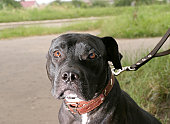NICE GUYS FINISH FIRST

For nearly as long as there has been lawyer advertising (not too long—it was roundly prohibited in many states until about 1977), lawyers have compared themselves to animals. Pit bulls, sharks, and other ferocious animals. The reason is simple—it’s what the market wants.
I’ve had this conversation with many potential automobile accident clients:
“You seem too nice.”
“I try to be nice.”
“I think I need a lawyer who is mean.”
“Why?”
“Because I want my lawyer to fight hard for everything I deserve.”
In the end, I’ve never lost a potential client who initially thought he needed a more aggressive attorney. The reason: logic and human behavior. Let’s think about those mean lawyers—those of us in the field know a few people who fit this description. People who will not budge on anything; people who speak loudly at every opportunity; people who take joy in making other people uncomfortable.
What happens when anyone (mean person or nice person) encounters someone like this? We push back. If you are mean (or “overly aggressive”), you are more likely to cause conflict. People don’t want to give in to someone who fighting, arguing or yelling for their position. We innately believe they are wrong, because they are pushing their position so severely.
On the other hand, what happens when someone encounters a nice person? We talk, get to know one another, and possibly develop a nice working relationship. We trade favors—if the nice person needs something, they are more likely to get it—just by asking.
This works with juries. One memorable case featured a defense attorney who was very aggressively cross-examining my client. He was doggedly going after her emotional status, trying to argue that she had emotional problems before the collision, and that the jury shouldn’t give much consideration to the emotional injuries she was claiming after the collision. He was so demeaning that she broke down and cried on the stand. The jury, feeling that he overstepped his bounds, rendered a verdict in the high six figures. I have no doubt that the verdict would have been much smaller if the defense attorney had been nice.
It also works among lawyers. Let’s say a client forgets to tell me about a medical provider she went to, we file the case and are ready for trial before she remembers. In the District Court, we must submit full copies of the medical records and expenses at least 60 days before trial. It is very rare, however, for any defense attorney to insist on that time-frame—if I’m late for almost any reason, most defense attorneys will accept the late filing. The ability to trade favors, and fight over only the important stuff, is a hallmark of the aptly-named civil litigation.
Which isn’t to say that even a nice lawyer can’t turn on a little aggression from time-to-time. Sometimes it is appropriate and even necessary. However, it shouldn’t be the default mode. If it is, the client will surely suffer.
 Maryland Car Accident Lawyer Blog
Maryland Car Accident Lawyer Blog

